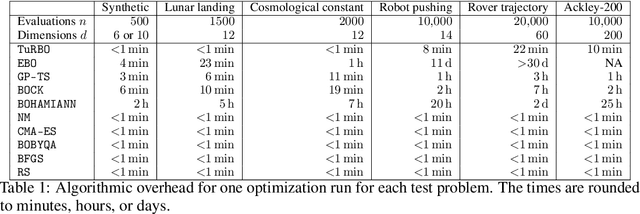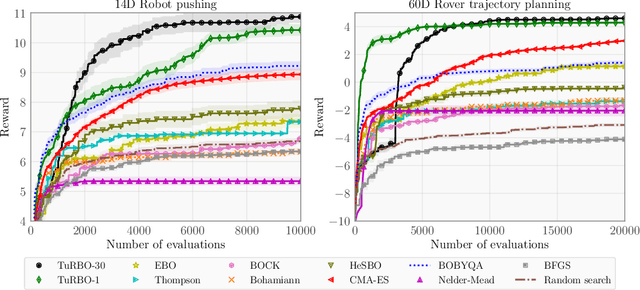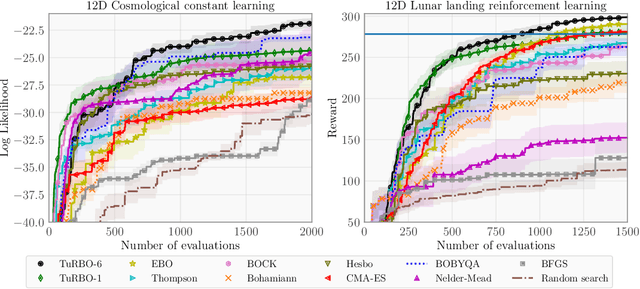Jacob R Gardner
Distributional Latent Variable Models with an Application in Active Cognitive Testing
Dec 14, 2023Abstract:Cognitive modeling commonly relies on asking participants to complete a battery of varied tests in order to estimate attention, working memory, and other latent variables. In many cases, these tests result in highly variable observation models. A near-ubiquitous approach is to repeat many observations for each test, resulting in a distribution over the outcomes from each test given to each subject. In this paper, we explore the usage of latent variable modeling to enable learning across many correlated variables simultaneously. We extend latent variable models (LVMs) to the setting where observed data for each subject are a series of observations from many different distributions, rather than simple vectors to be reconstructed. By embedding test battery results for individuals in a latent space that is trained jointly across a population, we are able to leverage correlations both between tests for a single participant and between multiple participants. We then propose an active learning framework that leverages this model to conduct more efficient cognitive test batteries. We validate our approach by demonstrating with real-time data acquisition that it performs comparably to conventional methods in making item-level predictions with fewer test items.
Scalable Global Optimization via Local Bayesian Optimization
Oct 28, 2019



Abstract:Bayesian optimization has recently emerged as a popular method for the sample-efficient optimization of expensive black-box functions. However, the application to high-dimensional problems with several thousand observations remains challenging, and on difficult problems Bayesian optimization is often not competitive with other paradigms. In this paper we take the view that this is due to the implicit homogeneity of the global probabilistic models and an overemphasized exploration that results from global acquisition. This motivates the design of a local probabilistic approach for global optimization of large-scale high-dimensional problems. We propose the $\texttt{TuRBO}$ algorithm that fits a collection of local models and performs a principled global allocation of samples across these models via an implicit bandit approach. A comprehensive evaluation demonstrates that $\texttt{TuRBO}$ outperforms state-of-the-art methods from machine learning and operations research on problems spanning reinforcement learning, robotics, and the natural sciences.
 Add to Chrome
Add to Chrome Add to Firefox
Add to Firefox Add to Edge
Add to Edge